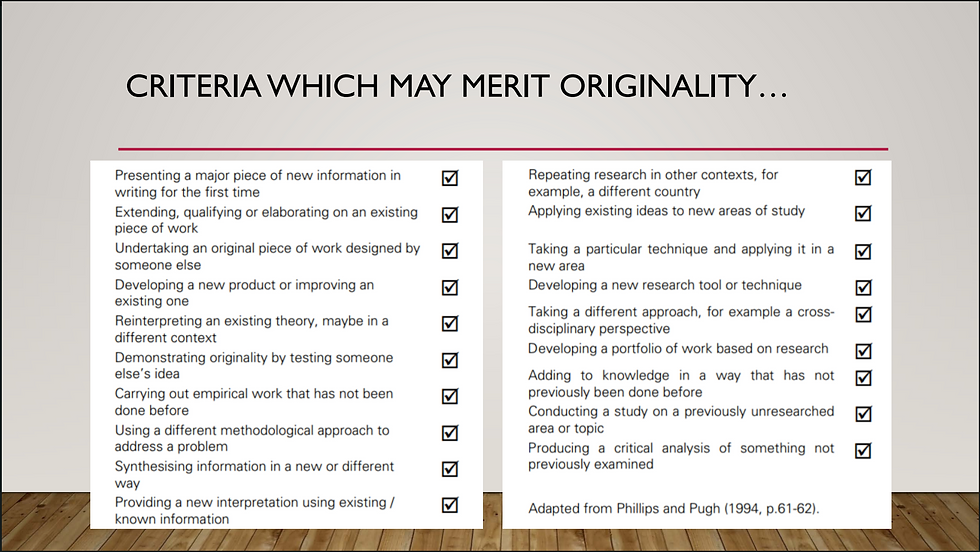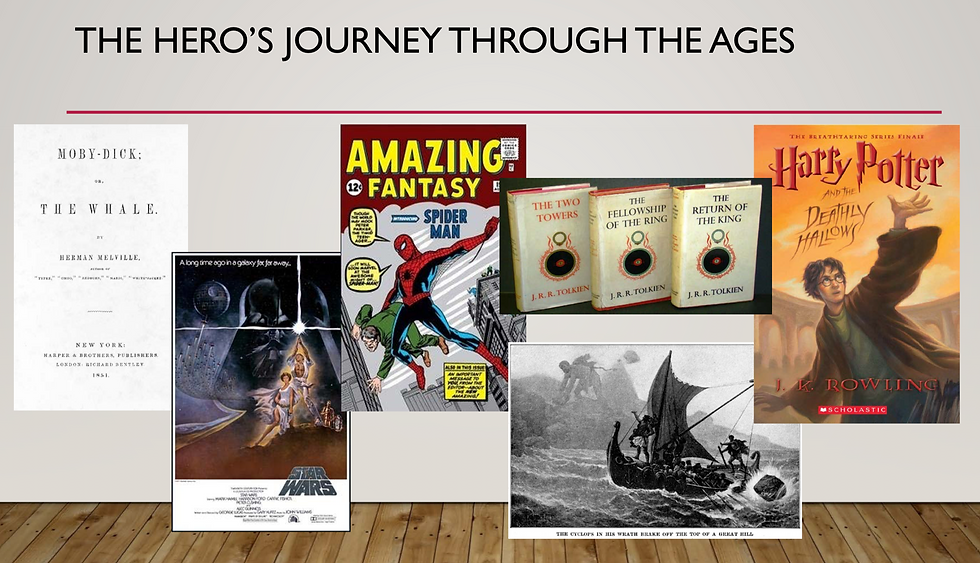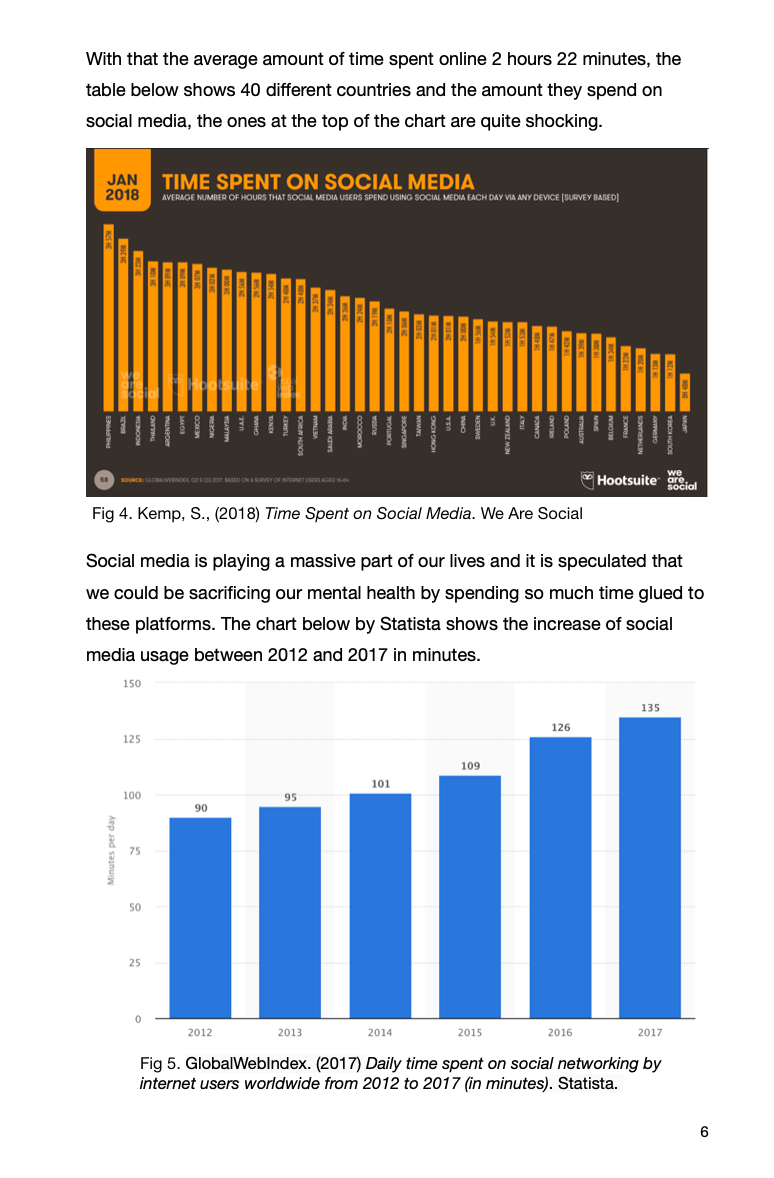Nothing is Original (and that's okay)
- hannahcranshaw
- Dec 1, 2018
- 5 min read
This weeks contextual lecture we had a new lecturer and the lecture was around the idea of originality and I found it really interesting.
It’s better to fail originality than to succeed in imitation - Herman Melville
To start the lecture off with some questions on originality.
How would you define originality?
Unique, somethings that not done before - could it be reinventing an idea?
Does originality exist?
It is harder than it was, we keep remaking things, you may think something it is original but someone has already done it so originality needs to be research
Should we try to pursue originality?
We hierarchy originality as we want original piece of art, they go for more money, we say ‘oh it won't be as good as the book’ however reworking of things is really good

We looked at and discussed whether we agreed with the points above.
Originality can be your perspective on a certain thing, adding methodology etc
We discussed Joseph Campbells idea of the Monomyth: “A hero ventures forth from the world of common day into a region of supernatural wonder: fabulous forces are there encountered and a decisive victory is won: the hero comes back from this mysterious adventure with the power to bestow boons on his fellow man.”
A myth is an idea that underpins a culture.
We discussed the theory of the seven basic plots. This belief is how no story is completely original.
The seven basic plots :
Rags to Riches
The Quest
Voyage and Return
Comedy
Tragedy
Rebirth
the hero's journey
We looked at the history of the hero's journey

I find this theory really interesting as because when you think about it there aren't many stories that don't fit into one of these categories.

Hillel Schwartz - Culture of The Copy (1996)
“An object uncopied is under perpetual siege, valued less for itself than for the struggle to prevent its being copied. The more adept the West has become at the making of copies, the more we have exalted uniqueness. It is within the exuberant world of copies that we arrive. at our experience of originality.”
People complain when you copy something but it is also confrontational to be original, you end up having to defend your new idea. We have a conditioned way of approaching it
Lots of things are copies/adaptations and we don't even know it, for example there are many films that are modernised adaptation of Shakespeare plays. 10 things i hate about you is an adaptation of Shakespeare’s The Taming of the Shrew.

I think it is okay to make adaptions of things as long as you give credit to the original because without the work they created you wouldn't be able to have made yours.

This quote is taken out of a cookbook but it can be applied to anything. I think it is a unique perspective but is very true.
“Our creativity comes from without, not from within. We are not self made, we are dependent on one another. Admitting this to ourselves isn't an embrace of mediocrity and derivativeness -- it's a liberation from our misconceptions, and it's an incentive to not expect so much from ourselves, and to simply begin.” - Kirby Anderson
Zeppelin didn’t change their songs enough to count them as original and they didn’t give credit to the original so they weren't a covers or remixes however they were still popular. Remixes changes the context of the original meaning.
Cultural appropriation is usually defined as the taking on of features of a minority
culture by members of a dominant culture. This often proves controversial due to the fact that it draws attention to power imbalances
that recall colonial oppression. Cultural appropriation is distinct from cultural exchange.
Cultural exchange describes the mutual sharing of information, usually cultural, for the
purpose of improving understanding between them.
What do we mean by cultural appropriation?
Shaming - usually defined as the taking on of features of a minority culture by members of the dominant culture
What do we mean by cultural exchange?
Agreed sharing - moana was a good representation where pocahontas wasn’t - describes the mutual sharing of information, usually cultural, for the purpose of improving understanding between them
PART TWO
Adaptations as remix
Adaptations of movies are really interesting like the modern day Romeo and Juliet, Tomb Raider, Bride and Prejudice. Batman is another good example as it has changed a lot over time, ideas have changed and there is less censorship. Comic books used to be made purely for kids now they are getting grittier and darker making them for a different, older audience.
Defining adaptation - critical perspectives
“Adaptations are everywhere today: on the television and movie screen, on the musical and dramatic stage, on the Internet, in novels and comic books, in your nearest theme park and video arcade” - Linda Hutcheon, A theory of adaptation p.2
Adaptation as dominant mode
- How do explain the large number of works based pre-existing work?
It's a safe bet - they know there is an audience - you know the first one works so why not make another
- Why do you think that adaptations are the dominant product in today's media market?Most films are referenced from something in the past that was referenced from something in the past
Once you accept that nothing is original you just get on with it and start recreating
Adaptation in art
Invert expectations
Banksy street art -- ‘upsetting it’ tearing it out, commenting on slave labour - really interesting how she goes out of the frame
Paul Scotts - Home truths - highlighting the refugee crisis - familiar china tea set made dark - paradoxical - it doesn't feel right - it's not a pretty pastoral scene anymore
Nostalgia
How would you define it?
Romanticisation of the past
A longing
Sentimentality of the past
We feel safer with something that been around for a long time, established
There is a lot of nostalgia with pre smartphone times
Dissatisfaction with current states makes people long for the past - the comfort of the past
Keep calm and carry on - It was a war time poster - made in the 40’s but didn't get mass produced until 2008 - British mentality - British values
What is nostalgia?
A sentimentality or romance
Disney movies - remakes
Nostalgia as aesthetic
When Instagram first came out it was a trend to use filters and make things looks older using filters, was this because we wanted to make things look like the past? Is it a fear of newness, we fear are presence so we revert to the past? Using filters on Instagram is not so common anymore but similar this are trending for example, apps that take photos to make them look like an image taken on a film camera.
Hauntology is the ghosts of our past haunt our future. Hauntology a historical and ontological (the philosophical study of being) disconnectedness of the present by spectres of the past.
There is a lot of art where you see the past and the present together.


Comentários